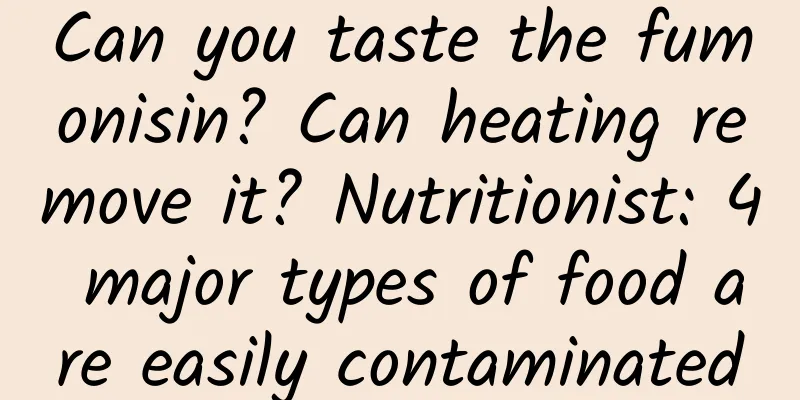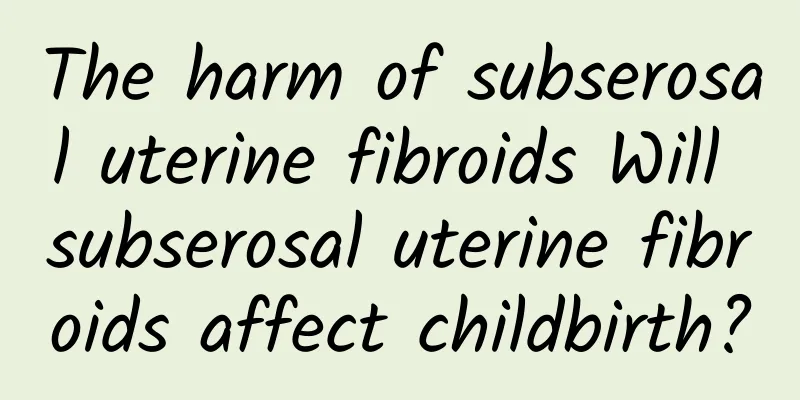Can you taste the fumonisin? Can heating remove it? Nutritionist: 4 major types of food are easily contaminated

|
A total of 18 cases of food poisoning in Baolin Tea House have been reported, including 2 deaths (including a 40-year-old man and a 66-year-old man), 5 cases in the intensive care unit, 1 case in the general ward, and 10 cases returned home for recuperation; a major discovery was made after forensic autopsy of the specimens, and "fumonisin" was detected in the blood of the specimens. Since there has never been a case of "fumonisin" poisoning in the country, there are many questions about fumonisin, such as "Can fumonisin be eaten?", "Can it be removed by heating?", "What are the foods that are easily contaminated by fumonisin?", "How to prevent eating fumonisin?", etc. Nutritionist Cheng Hanyu explains it in detail on Facebook and blog. What is Bongkrek acid?Bongkrek acid-induced food poisoning cases result in a high mortality rate. Doses as small as 1–1.5 mg can be fatal to humans, with reported symptoms including gastrointestinal and neurological symptoms, and severe cases experiencing multiple organ failure including liver and kidney failure. Symptoms of fumonisin food poisoningThe incubation period after contact with food contaminated with fumonisin is 1-10 hours. The main organs affected are the liver, brain, and kidneys. Signs and symptoms in humans are similar to the clinical presentation of other mitochondrial toxins but vary in severity and time course. Reported symptoms included malaise, dizziness, drowsiness, excessive sweating, palpitations, abdominal pain, vomiting, diarrhea, bloody stools, oliguria, hematuria, etc. Findings during patient examination included hypotension, arrhythmia, hyperthermia, jaundice, jaundice and rigidity of limbs, drowsiness, delirium, shock, coma, and death. What are the optimal growing conditions for the deadly fumonisin?"Warm, not too sour, not too salty, and with oil are the best conditions for growth!" (The opposite means that rice fermentation acid does not like an environment that is too sour, too salty, too cold, or too hot. In other words, if you want it not to grow, the food must be hygienic from the beginning, well-preserved and well-made, whether it is frozen or refrigerated or sterilized at high temperature, salt pickling or acid pickling can help reduce the risk of contamination.) Growth conditions of fumonisin (Photo provided by nutritionist Cheng Hanyu) The production of fumonisin depends on two different and consecutive environmental conditions: 1. Environmental conditions that support the growth and proliferation of B. cocovenenans (fumonisin comes from the deadly toxin produced by B. cocovenenans) 2. Environmental conditions conducive to the production of fumonisin Fumonisic acid is produced in a warm environment (22–30 °C) with a neutral pH. Production also depends on the presence of fatty acids, particularly those found in coconut and corn. Nutritionist Cheng Hanyu said that bacterial growth medium containing oleic acid produces the highest concentration of fumonisin. When B. cocovenenans is cultured on coconut medium under ideal conditions, toxin production can reach 2-4 mg/g by the second day of culture. Lauric, myristic, and palmitic acids make up 71.5–74.5% (by weight) of the fatty acids in coconut oil, while oleic acid can be found in varying concentrations in corn. R. oligosporum has an inhibitory effect on the production of fumonisin and can reduce fumonisin concentrations when a sufficient number of fungal colonies are allowed to form. How to prevent fumonisin from being consumed? Nutritionist Cheng Hanyu said that the way to protect yourself is to not eat, but it is difficult for people who eat out to avoid it. Food contaminated with fumonisin looks, smells and tastes exactly the same as uncontaminated food! (Photo provided by nutritionist Cheng Hanyu) Why have I never heard of fumonisin before?Until recently, there have been no reports of fumonisin poisoning outside of Asia, but fumonisin-related poisoning in other countries around the world cannot be ruled out. It is unclear why it has not been detected in other parts of the world before, as B. cocovenenans is ubiquitous in soil. Lack of confirmatory testing capabilities for bacteria or fumonisin testing, or failure to consider the diagnosis, may lead to misdiagnosis. How to prevent fumonisin from being consumed?How to prevent fumonisin from being consumed? Nutritionist Cheng Hanyu said that the way to protect yourself is to not eat, but it is difficult for people who eat out to avoid it. Food contaminated with fumonisin looks, smells and tastes exactly the same as uncontaminated food! And there are no reliable commercial methods to screen foods for Bacillus cocoides, fumonisin, or toxins. Based on past experience, the main way to prevent aflatoxin poisoning is to prevent the production and consumption of high-risk fermented foods. Help reduce the risk of B. cocovenenans contamination by adopting good hygiene practices during production. Alternatively, acidifying the fermentation environment or adding salt appears to reduce toxin formation, but this may result in the appearance or taste of fermented foods being unacceptable to the public. This type of fumonisin food poisoning may be difficult to diagnose correctly for a variety of reasons, including lack of confirmatory testing capabilities or being too rare to be ignored. In which foods may fumonisin appear?Nutritionist Cheng Hanyu said that fumonisin may appear in the following 9 categories of food: Steamed Vermicelli Roll Pho Rice Noodles Wet rice noodles Wet bean vermicelli Long soaked black fungus Long soaked Tremella Liangpi Fermented cornmeal There are four major categories of food that are susceptible to contamination by fumonisinAs for foods that are easily contaminated by fumonisin, there are mainly four categories: 1. Deteriorated starch products (glutinous rice, millet, sorghum rice, potato flour, etc.) 2. Spoiled fresh Tremella fuciformis Berk 3. Completely or partially fermented corn 4. Coconut products Can fumonisin be removed by heating?There is no way, heating at 120 degrees C for one hour still causes toxicity. There is currently no specific drug for detoxification. Can you tell if food is contaminated with fumonisin?Can we tell if food is contaminated by fumonisin? The answer is, you can’t taste it. Fumonisin is odorless and tasteless; contaminated food has a normal appearance, smell and taste. Complete Introduction of Fermented Acid Dietitian Han-Yu Chen Facebook Dietitian Han-Yu Chen's blog 👉Recommended reading: Has the murderer of Baolin Tea House been found? ! Wang Bisheng: The test found fumonisin! Toxicology professor reveals why the virus is so toxic? 👉Recommended reading: The murderer at Baolin Tea House is likely to have used aflatoxin! Yan Zonghai: There is no antidote, 1 mg can be fatal |
Recommend
Symptoms of harm caused by pelvic inflammatory disease
What kind of harm will pelvic inflammatory diseas...
careful! Drinking more than 5 cups of coffee a day may cause weight gain
When it comes to globally popular beverages, ther...
How is Bartholinitis spread?
The Bartholin's glands are located at the bac...
Will ovarian cysts bleed heavily? What are the symptoms in the late stage?
Many friends have heard of ovarian cysts, but the...
What are the symptoms of chronic cervicitis in women? There are three symptoms of chronic cervicitis that cannot be ignored.
Cervicitis in women is a very common gynecologica...
Approximate cost of treating endometrial tuberculosis
Will the cost of endometrial tuberculosis examina...
Dietary taboos for uterine leiomyoma What can you eat for uterine leiomyoma
Uterine fibroids are the number one disease for w...
What are the symptoms of ovarian cysts? Five symptoms worth noting
What are the symptoms of ovarian cysts that are w...
Can congenital biliary atresia be detected during prenatal examination?
It is usually difficult to detect congenital bili...
Is chocolate ovarian cyst the same as ovarian cyst? What is the difference between the two?
Many young women suffer from ovarian diseases, bu...
What are the causes of uterine fibroids?
What are the causes of uterine fibroids? I believ...
Can I get pregnant after having amenorrhea?
Whether a woman with post-abortion amenorrhea can...
Pesticide-toxic fruit and vegetable controversy: The pass rate is nearly 95%
On the 24th, Greenpeace announced the results of ...
What causes cervicitis?
Cervicitis is an inflammation caused by the invas...
Not all menstrual cramps can be cured by just enduring them!
As for dysmenorrhea, only women can understand th...









